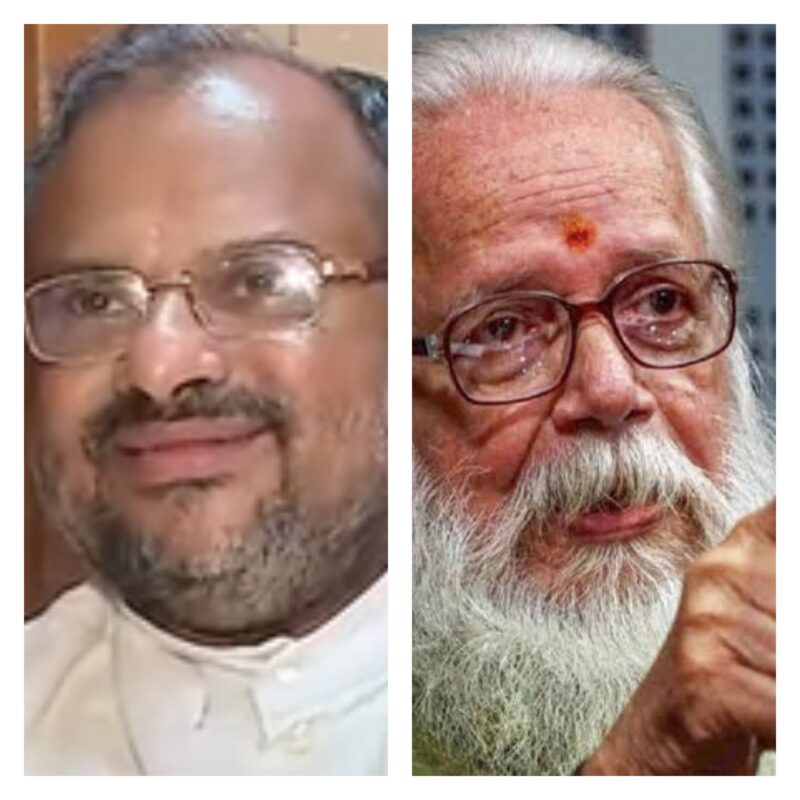Dr.Thomas (Special Correspondent)
The cases of Nambi Narayanan and Bishop Franco Mulakkal have been widely discussed in India and have raised important questions about the role of the justice system in upholding the principles of justice and fairness.
Both individuals were accused of serious crimes and were subject to prolonged legal battles that had a significant impact on their personal and professional lives.
However,in the end,they were both acquitted of the charges against them, highlighting the importance of a fair and impartial justice system.
Nambi Narayanan
The case of Nambi Narayanan is a stark example of how allegations of espionage and national security threats can be used to target individuals who may have no intention of committing any wrongdoing.
Narayanan,a former scientist at the Indian Space Research Organization (ISRO), was accused of leaking sensitive information about India’s space program to foreign countries in 1994.
He was arrested and charged with espionage,but the case against him was eventually dropped due to lack of evidence.
However, the damage had already been done. Narayanan was subjected to intense scrutiny and harassment by law enforcement agencies,and his reputation was irreparably damaged.
It was later revealed that the case against him was built on flimsy evidence and false accusations,and that the police officials involved in the investigation had used unethical and biased methods to extract confessions from Narayanan and other accused persons
Finally the Country honored Nambi Narayan with Padma Bhushan award.
Bishop Franco Mulakkal
Bishop Franco Mulakkal is an Indian prelate of the Latin Catholic Church. He has worked as the bishop of the Roman Catholic Diocese of Jalandhar.
There is a massive conspiracy against bishop Franco Mulakkal who actively fought the drug menace in the border district of Jalandhar in Punjab.
The drug mafia was not happy with the excellent work done by the bishop and planted a false criminal case to tarnish his image and put him behind bars.
Drug menace
Punjab continues to be in the grip of drugs and addiction despite the tall claims made by politicians to the people during the elections.
An estimated 190 drug overdose deaths have been reported in various parts of the state during the past eight months.
Jalandhar continues to top the charts in drug overdose deaths in Punjab.
The case against Bishop Mulakkal was complicated and controversial, with false allegations,biased police system,radical group interference.
Bishop Mulakkal was subjected to a prolonged legal battle, which had a significant impact on his personal and professional life.
He was forced to step down from his position as the bishop of Jalandhar diocese and was placed under house arrest for several weeks.
He was also subjected to intense media scrutiny and criticism, which took a toll on his mental health.
However,in 2021,Bishop Mulakkal was finally acquitted of all charges,and the court found that the prosecution had failed to prove the allegations against him.
Intresting fact is,Only 39 witnesses of 83 named came to the court.The rest did not come to court seeing fate of the previous false witnesses.No witness turned hostil of the abandoned witnesses,include victims own brother and the younger nun- sister.
That clearly was part of conspiracy to trick others to bear false witnesses while protecting one’s own siblings.
The role of the justice system is not just to punish wrongdoers, but also to protect the rights and dignity of every citizen, regardless of their status or background.
Regardless of the outcome of the case,it is clear that Bishop Mulakkal suffered greatly during the years that the case was ongoing.
He was subjected to public ridicule and scrutiny, lost his position within the Church,and was forced to fight to clear his name.
“The cases of Bishop Franco Mulakkal and Nambi Narayan raise a few questions: Who is responsible for their suffering?”





